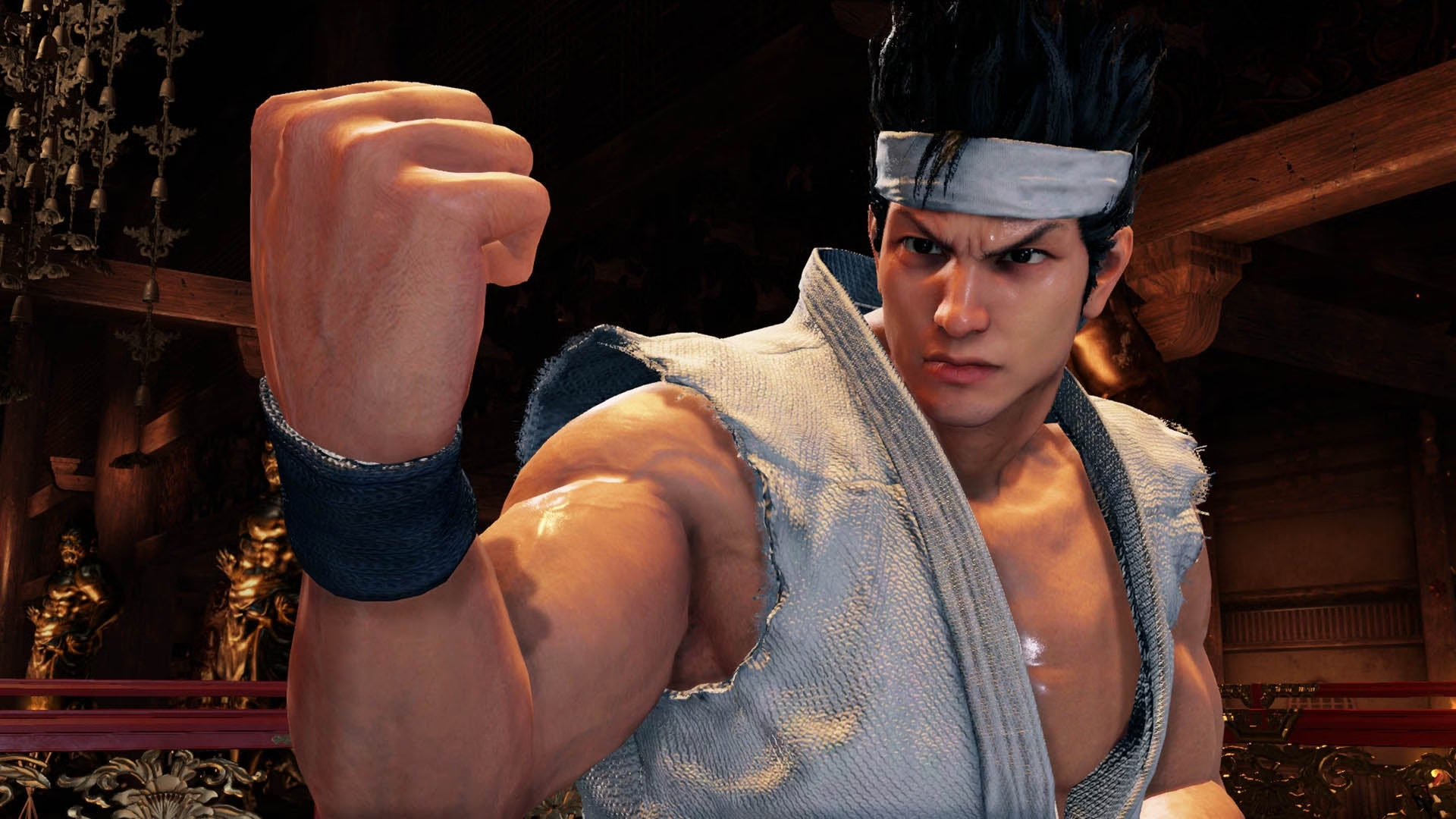Dune: Part 2 Is a Perfect Adaptation Because of One Key Difference
Estimated reading time: 10 minutes
Warning: this article contains spoilers for Dune: Part 2! Check out our spoiler-free review of Dune: Part 2.
There was a guy sitting two rows behind me at my screening of Dune: Part 2 who, as the lights came up for the credit roll, loudly declared, “Well, there’s another non-ending.”
I half turned around and even took the breath I would’ve needed to shout at him about the expansive nature of Dune’s source material and how this was, in fact, a great ending. It’s just that it’s the ending of a second chapter and the beginning of a third that veers in a very crucial way from Frank Herbert’s first novel in the series, which in turn shows how great a job director Denis Villeneuve and co-writer Jon Spaihts did in adapting a novel that was long considered un-filmable. And it’s specifically because it doesn’t “end” the way the book did.
I didn’t say any of that to the guy, though. Instead, I went home and wrote this.
Faithfulness (And the Importance of Being Unfaithful)
Dune: Part 2 completes what is a perfect page-to-screen translation specifically because it’s different. Inevitably, adaptations as weighty as this will get held to the scrutiny of decades of fandom. What was left out, what was added, what was different. It was always a nearly impossible task to adapt Dune. David Lynch’s 1984 version was a strange beast, while Jodorowsky’s Dune at least made for a great documentary a few decades later, and there was no danger of Part 2 being hyper-faithful thanks to Dune: Part 1 having already veered from the source material.
The bigger philosophical point about adaptations though is that they should be different. Whatever the source material, books, graphic novels, video games, anime going to live action, to not acknowledge the different medium is short-sighted. What a waste of all that Bene Gesserit training to ignore the difference 60 years of changing landscapes can make.
Villeneuve and Spaihts wrote the two parts of Dune with an eye on the past and future that would make the Kwisatz Haderach proud, by adapting the source material through space, time and a dose of spice. The ending (or non-ending, as the guy behind me groaned about) is the proof.
Space (And Space Stuff)
Before we get to the ending though, it’s important to note that Denis Villeneuve’s pair of Dune films leave all the right things out. For the story of Paul Atreides ascending to the mantle of a Fremen prophecy, Frank Herbert fleshed out the political and corporate intrigue of an entire galaxy in the distant future. But the film version is the story of Paul Atreides as a young man growing and struggling with the responsibilities being laid on his head. For that, CHOAM, the corporation controlling all commerce across the empire, doesn’t matter even a little bit. The Spacing Guild Navigators, with their mutated fish-like appearance floating in their tanks of spice gas, don’t really matter either. That all adds up to a richly textured world for a book, but for a movie that relies on the audience caring about its main characters, galactic corporate intrigue and prescient fish pilots are the type of sci-fi tropes that just get in the way.
For all its interstellar travel, ancient prophecies and massive sandworms, Dune is a remarkably grounded film. It succeeds because we can relate to and care about Paul and Chani, the dynamic that, especially in Part 2, carries the real storytelling weight. Their story is one that represents the biggest and most important change in the whole film: the so-called non-ending. (I really hope that guy is reading this…)
Time (And Six Decades of Change)
Frank Herbert published Dune in 1965, and for those keeping track at home, a lot has happened in the almost 60 standard years between the book and Denis Villeneuve’s films. Herbert scholars more versed in his history than I can talk at greater length about his allegorical intentions in the original novel. With OPEC founded just a few years prior, the struggle for control of the Middle East’s oil production is an obvious parallel with Arrakis, a topic that’s become no less relevant today.
Meanwhile, Herbert’s thoughts about the hero’s journey as a bogus and dangerous endeavor that actually robs the people relying on that hero of their own agency lines up with Villeneuve’s comments about the state of superhero movies turning the audience into zombies. All this is to say there’s something timeless about Dune. One could argue that any great work of art that stands the test of time needs a relevance that’s to some degree eternal. But the times they are a-changin’ just the same, and Villeneuve and Spaihts chose Chani to illustrate that.
In the novel, Chani is on board (relatively) with Paul’s plan to gain control of the Imperium by marrying Princess Irulan. It’s a logical choice made by a guy who can see the future, and Paul is able to assure Chani that Irulan will be his wife on paper only, as a political convenience, and that Chani will be, for all intents and purposes, his one true love. In fact, she’s so committed to Paul and his ascendency that Chani even offers to take off if it would help.
In the movie, however, Paul does not share his plan with Chani. She learns about it along with everybody else in the throne room as Paul shouts his demands at the emperor. Needless to say, she’s a little pissed. As Paul leads the Fremen out into space and on to a jihad, Chani stays behind on Arrakis. It’s a much more tragic closing to this chapter, one that Paul sees coming as well. The weight of, as he puts it, “what I must do,” is clear and causes real hesitation in the Kwisatz Haderach.
But the true brilliance of this ending is actually set up throughout the entire film. Dune: Part 2 is peppered (spiced?) with changes throughout that justify Chani and Paul’s split and earn the “not-a-ending” that the guy behind me just hated sooooo much. (I wonder what he’s writing about for this movie…)
Spice (And Spicy Things)
One key change is inserting more fanaticism in the plot, or rather, highlighting it in a different way. Herbert’s book was full of true believers, but the movie goes out of its way to present real opposition to that faith. Chani and her younger friends laugh about Javier Bardem’s Stilgar and the more fanatical gray beards that wholly believe the prophecy. It throws the prophecy in sharp relief by placing it next to more vocal and explicit cynicism.
Villeneuve also goes well out of his way to make a villain out of Lady Jessica, Rebecca Ferguson’s newly Water of Life’d up Reverend Mother. Jessica is downright evil in her manipulation of the weaker, more fearful Fremen, rallying the most vulnerable among them to help with Paul’s ascension. She’s willfully sinister in ways that are much less explicit in the book series until Herbert gets to his third novel which opens the door for Villneueve to explore that sooner rather than later. Paul gets a bit of a heel turn that’s more overt as well. He’s keenly aware that the prophecy is all Bene Gesserit fabrication going back generations, but he plays his part. He’s suitably bummed out about it, but that doesn’t stop him from taking advantage of his position in order to get his revenge.
Jessica’s little sister Aliah is left in the womb by Dune: Part 2, while Paul and Chani’s child who dies in the climactic action of the first novel is also skipped in the adaptation. Not only do these omissions streamline the story, but they allow us to stay focused on Paul and Jessica’s more selfish motives.
While all of this adds up to the audience being presented with a more relatable Chani, a less likable Paul and a more tragic circumstance for the couple, it also sets up the future of this film series to continue veering farther away from the source material.
Villeneuve has talked plenty about Dune Messiah being next, but thanks to Paul and Chani’s split at the end of Part 2, the first few chapters of Dune Messiah are impossible to adapt faithfully. In the opening chapters of Herbert’s second novel in the series, Chani is rubbing Paul’s feet and making him coffee and wondering if maybe it’s time to get Irulan pregnant. She’s playing every bit the subservient wife that 1960s literature was used to, albeit sprawling sci-fi literature, so that’s a totally fine thing to lose.
Messiah does deal with the fallout of Paul’s choices more directly, however, and even presents a Fremen community divided on how they feel about the emperor they followed into a holy war. This is a split that Villeneuve and Spaihts have set up incredibly slyly with their changes to Chani’s character. What better way to add a sense of tragic weight to the story than by setting Chani up to lead the opposition to Paul?
I’m also now realizing it’s a little weird I’ve barely mentioned Florence Pugh’s Princess Irulan all that much. She’s hardly present in the book, aside from the histories she’s written that serve as a framing device. In the film though, her perspective is rolled into the proceedings in real time. She’s clearly capable and extremely smart and more than a little dubious of her father and the Bene Gesserit’s motives for wiping out the Atreides. She seems to see the humanity in Paul and it feels like they might actually be a good match if they wanted to. If this is the case, it further complicates the plot of Dune Messiah as the book opens with her involved in a plot to overthrow Paul. But what it could impact in a really incredible way is the dynamic between herself, Paul and Chani.
The Water of Life (And Sandworm Piss)
All of these changes add up to an extremely compelling movie here in 2024, but most importantly, they open up the space needed for Villeneuve and Spaihts to make a third extremely compelling film. Whether it’s called Dune Messiah or Dune: Part 3 or Dune: Throuple in Paradise, it doesn’t matter. The adaptation of Herbert’s enormous world will continue to be “un-filmable” in ways that actually make a great translation easier if you accept that it won’t be one-to-one.
And no, guy two rows behind me, maybe it’s not a neat and tidy ending, but it’s not a non-ending. Where Part 1 ended the story of Paul, Duke of House Atreides, and began the story of Paul, “Muad’Dib,” Part 2 ends the story of the Lisan al Gaib and begins the story of a would-be God Emperor’s holy war that he’s not exactly psyched for because Chani’s right to call him out on his bullshit.
This is a great series of films, and will continue to be, because of a renewed focus on the characters and what matters to them in ways that make sense today. That’s why it resonates. not because it’s exactly the same as the source material and certainly not because they found some clean, manufactured “ending.”
And if anybody knows who that guy behind me was, please send him a link to this.









